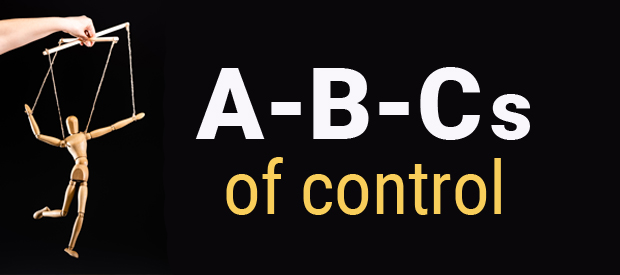Franchise 101: Preemption Preempted; and Kentucky Fried Impact Study

Franchisor 101: Preemption Preempted
Patel v. 7-Eleven, a case in Massachusetts, has been closely watched since the ABC test took hold of franchise relationships in employee misclassification cases across the country.
A putative class of 7-Eleven franchisees claimed they were employees who were misclassified by their franchisor as independent contractors. The trial court granted summary judgment to 7-Eleven, ruling that the independent contractor statute does not apply to franchise relationships because there was an inherent conflict between the statute and the FTC Franchise Rule.
On appeal, the U.S. Court of Appeals for the First Circuit certified a question of state law to the Massachusetts Supreme Court: whether the state’s three-prong “ABC” test for independent contractor status applies to franchises, where the franchisor must also comply with the FTC Franchise Rule. Reversing course from the trial court, the state Supreme Court ruled the ABC test applies to franchises where a franchisee is an “individual performing any service” for a franchisor and ruled the test did not conflict with the franchisor’s disclosure obligations under the FTC Franchise Rule.
The court observed the independent contractor statute did not exclude franchises. If franchisees were excluded by judicial ruling, employers could evade obligations under the wage statutes by calling an employment relationship a franchise. The court rejected the idea that franchises are impliedly excluded due to separate regulation under the FTC Rule.
The court understood the First Circuit was troubled that a franchisor electing to exercise a “significant degree of control” over a franchisee’s operation under the FTC Franchise Rule, might not be able to show the franchisee was “free from control and direction” under the ABC test. However, the court noted the FTC Franchise Rule is “a pre-sale disclosure rule.” It requires franchisors to provide a Disclosure Document to prospective purchasers. It does not regulate the substantive terms of the franchisor-franchisee relationship.
Apart from disclosure requirements, the court observed that the apparently conflicting tests are not the same. This is because “control over the franchisee’s method of operation” does not require a franchisor to exercise “control and direction” in the franchisee “performing any service” for the franchisor. Use of the same word “control” does not create an inherent conflict.
Per the court’s example, a franchisor dictating that a franchisee include certain items on its menu, does not mean it dictates franchisee hiring decisions, kitchen layout, or employee wages. The court concluded “significant control” over a franchisee’s “method of operation” is broader than “control and direction” of an individual’s “performance of services” and not coextensive.
Noting other cases where day-to-day control was not found, and industry reports of franchise growth across the country, the court was satisfied franchisors do not face an insurmountable hurdle to avoid liability under the ABC test, and the test will not result in every franchisee being deemed an employee under the independent contractor statute.
The Massachusetts Supreme Court dealt a swift blow to the argument that the FTC Franchise Rule preempts the state’s ABC test.
But the court dispelled the idea that the entire franchise model is in jeopardy. The ABC test should not prohibit a legitimate franchise relationship, so long as it is not created to evade employment obligations under wage and hour laws.
Franchisors that structure their franchise systems with proper documentation for franchisees to hire and fire, set wages and instruct employees, and to not control day-to-day store operations, will likely avoid a finding that their franchisee is also an employee.

Franchisee 101: Kentucky Fried Impact Study
Zubair Kazi operated a KFC franchise in Pueblo, Colorado since the 1980s. In 2019, KFC approved another individual to open a KFC restaurant in Pueblo. Kazi sued, claiming KFC breached its implied duty of good faith and fair dealing. Kazi claimed the approval violated KFC’s guidelines concerning impact a new restaurant might have on Kazi’s existing restaurant. A jury awarded Kazi close to $800,000 in past and future lost profits.
KFC asked the court to reject the jury verdict, arguing that reasonable business decisions cannot be second-guessed by a jury. KFC argued its guidelines and franchise agreement let KFC license the new restaurant. Under the guidelines, KFC hires a consulting company to do an impact study. KFC approves the new franchise if the study finds less than 10 percent impact on sales, conducts further study if the impact is 10 percent to 15 percent, and withholds approval if the impact exceeds 15 percent.
Kazi argued KFC’s sales impact study was predetermined, as KFC used a company it knew would generate a favorable report, and KFC disregarded information suggesting a higher impact on Kazi’s sales.
The court agreed with the jury that KFC hired a company it frequently used in the past, which found a less-than-15 percent impact every time. The court concluded the evidence supported the jury’s conclusion that the consultants did not conduct a reliable survey. They omitted an important question about Kazi’s restaurant. KFC did no further review after a preliminary indication suggesting 22 percent impact on Kazi’s sales. KFC’s continued use of the consulting company supported an inference of bad faith.
KFC also argued that Kazi did not prove future lost profits with reasonable certainty. The court disagreed, pointing to Kazi’s longtime experience as a KFC franchisee and testimony of his damages expert, who limited his opinion to the length of the franchise agreement.
A franchisee should review with counsel its franchisor’s policy on impact studies, if any, and try to assess the type of study performed and factors considered in determining sales impact of a new franchise opening near a franchisee’s existing unit. KFC appealed the decision, so unless settled, a further ruling is expected.